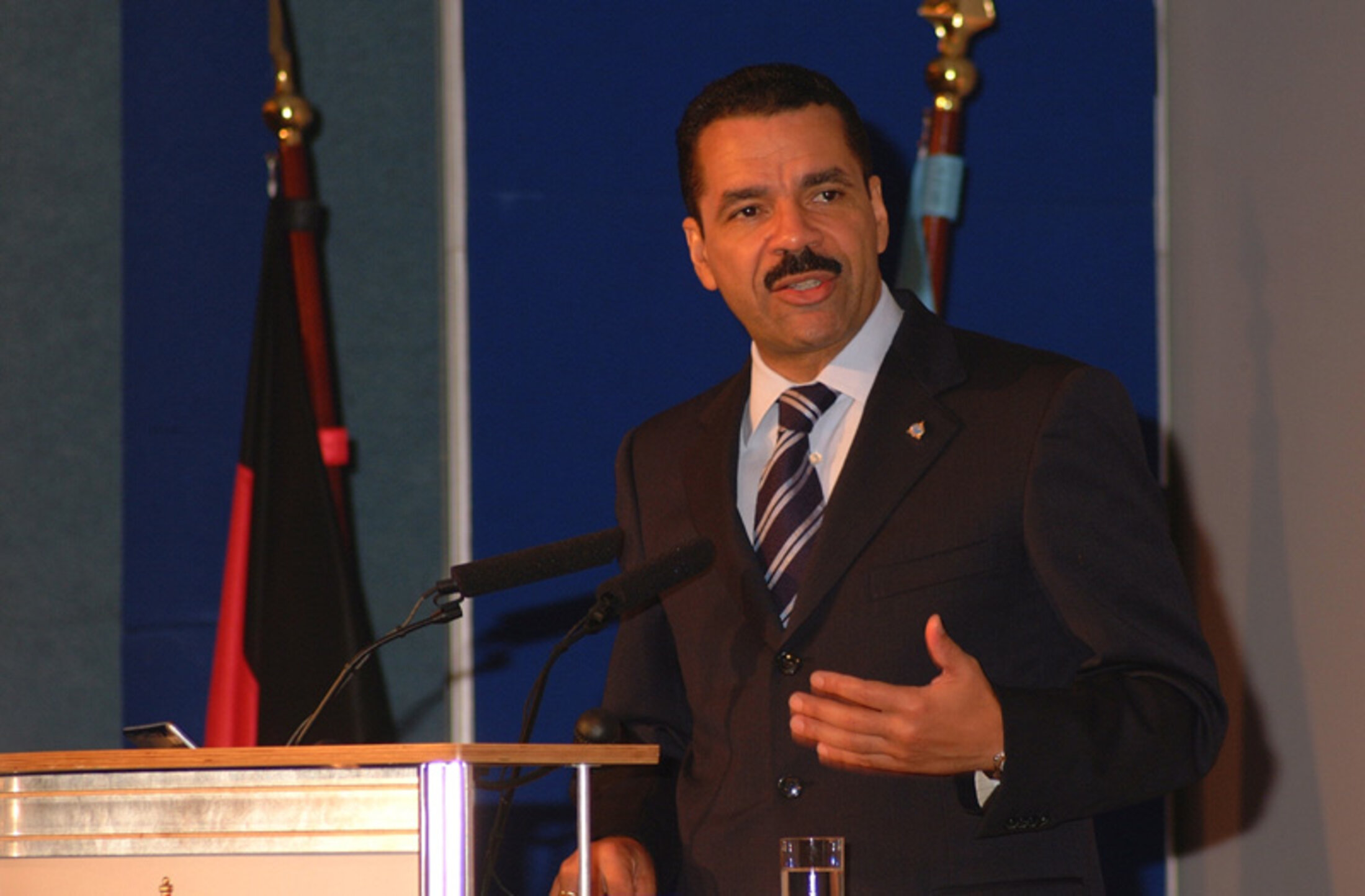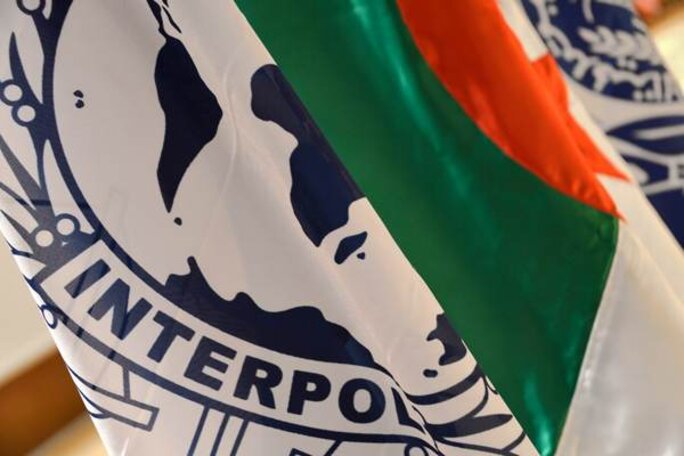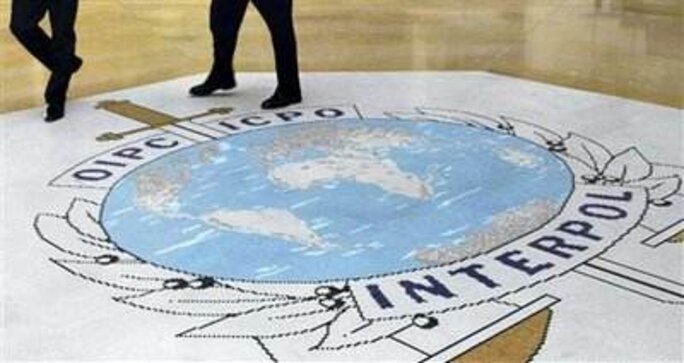On the surface, the three-year agreement between Interpol and 29 pharmaceutical firms, announced in March, appears a laudable project to eradicate the major international scam of bogus drug trafficking that causes the deaths of hundreds of thousands of people every year, mostly in developing countries.
However, no clear definition of what constitutes a fake or counterfeit drug exists under international law. Meanwhile, the giants of the pharmaceutical industry, made up essentially of European and US firms, are engaged in an energetic combat against the production of generic drugs, cheaper than their own, mostly manufactured in emerging economies.
All of which raises the question of whether Interpol now finds itself defending the private interests of the big drugs firms, in particular intellectual property rights and patents, to the detriment of public health that might benefit from wider access to low-cost generic medication.

Enlargement : Illustration 1

A former Interpol employee, who worked in the intergovernmental organization at a managerial level, is critical of the deal. “Don’t ask yourself what Interpol is after, ask yourself what these private groups are looking for,’ said the man, whose name is deliberately withheld here.
“Access to health care and medicines is the right of citizens,” said German Velasquez, who until May 2010 was head of the World Health Organisation’s Secretariat on Public Health, Innovation and Intellectual Property based in Geneva. “We are talking of human rights. We must not subordinate that to commercial norms.”
“The World Health Organisation must be given international regulation powers that it has completely lost because states have allowed the privatisation of such regulation,” he added.
In documents relating to the deal between the pharmaceutical firms and Interpol to which Mediapart has gained access, there are clearly issues of public interest regarding the influence of the drugs industry on police operations, including questions of conflicts of interest, information exchanges, personal networks and sponsoring.
Interpol, which is based in the southern French city Lyon, vigorously denies taking sides between the industry giants and the manufacturers of generic drugs. “Our agreements explicitly acknowledge INTERPOL’s independence and neutrality, and make clear that the Organization retains full control of when, where and how to spend any funding. Any claim to the contrary is simply false,” commented the organisation’s chief press officer, Rachael Billington in a written reply to Mediapart in which she also stated that: “With the trafficking of counterfeit and illicit medicines a global phenomenon affecting all countries and endangering the lives of millions of people around the world, it is only logical that INTERPOL should work with the pharmaceutical industry to combat this type of crime.” (The full text of Interpol’s reply can be found on page 4).
On November 10th 2011, Interpol secretary general Ronald K. Noble travelled to Madrid to meet members of the Dolder Group, a little-known entity that is composed of chairmen and CEOs of the 29 largest pharmaceutical companies. The meeting, which was never mentioned on Interpol’s website, would finally lead to the agreement announced in March this year.
The Madrid meeting was an important fundraising event for Noble, a former Undersecretary for Enforcement of the US Treasury Department and a professor of law at New York University. His organization operates on a tight yearly budget of 70 million euros. While Noble had promised Interpol’s 190 member states that he would not seek an increase in their contributions, he began looking for sources of finance from the private sector. In June 2011, the international football federation, FIFA, donated 20 million euros to Interpol. In June 2012, it was the turn of the world’s largest cigarette manufacturer, Philip Morris, which gave the organization 15 million euros.
Interpol’s links with Sanofi
In his meeting with members of the Dolder Group, Noble told them that Interpol “understands the sensitivity” of their combat against counterfeit drugs. He told them his organization could develop a “multiple strategy” to protect both the interests of the industry and the safety of millions of people worldwide.
At the end of his presentation, Noble made a point of thanking French drugs firm Sanofi, and “in particular” its Chief Executive Officer (CEO), Chris Viehbacher, for the financial support it had given. Sanofi had for several years already contributed to financing Interpol operations, and it was Viehbacher who introduced Noble to the Dolder Group.

Enlargement : Illustration 2

Jacques Franquet, who was Sanofi’s director of economic security until he retired in July this year, is a longstanding friend of both Noble’s and also the head of Interpol’s Medical Products Counterfeiting and Pharmaceutical Crime (MPCPC) unit, Aline Plançon. Franquet, a former director with the French national police force’s detective branch, the Police Judiciaire, was also an ally of former French interior minister Charles Pasqua, a veteran conservative politician of the Gaullist movement whose career has regularly been surrounded by controversy.
In 1995, Franquet resigned from the Police Judiciaire for having mounted phone taps on the father-in-law of French investigating magistrate Eric Halphen while the latter was investigating a corruption scam at the conservative-run Paris City Hall. After he failed in his bid to become head of the European Union’s law enforcement agency Europol, Franquet joined Sanofi in 2005 where he was given the specific task of combating counterfeit medicines.
The March agreement between Interpol and the pharmaceutical giants allows for specific training of police officers and customs officials, which is one of Interpol’s few in-the-field activities. It is to be led in cooperation with a Paris-based institute for research against counterfeit medicines, the l'Institut de recherche contre les médicaments de contrefaçon (IRACM), which was founded in 2010 by Sanofi.
Contacted by Mediapart, Sanofi claimed the institute had an independent status. “IRACM is an autonomous institute whose mission is notably to advise and train the services engaged in the fight against counterfeit medicines,” said a statement from the firm. However, in reality, the IRACM is 80% owned and funded by Sanofi, and from its creation until he retired on July 1st, Jacques Franquet was its director.
Under the terms of the partnership agreement between Interpol and the pharmaceutical firms, Sanofi has agreed to donate 270,000 euros to Interpol over a three-year period. Meanwhile, the partnership agreement includes a budget of almost 430,000 euros for training law enforcement officers in the fight against counterfeit medicines. Part, or all, of that sum will go to IRACM. Thus Sanofi’s financial contribution to the partnership will be indirectly refunded, while its association with the international police organization in training activities can only bolster its public image.
Thomas Cueni is a high-profile lobbyist for the Swiss pharmaceutical industry and served as a coordinator for the partnership agreement. “Between Interpol and us, there will be exchanges of information, training, [and] international conferences to raise awareness,” he said.
“Interpol applies justice in favour of some, against others,” warned former World Health Organization (WHO) official German Velasquez. “Currently, there is a total blockage between countries of the North and those of the South over the World Health Organization’s definition of what is counterfeit.”
Interpol secretary general Noble is well aware of that. In 2010, an operation targeting counterfeit drugs led by the WHO and Interpol, called IMPACT, was forced to close down after pressure from a number of countries, including India, Brazil and Thailand, who complained that they had not been properly consulted about the project. Noble specifically referred to the problems encountered by IMPACT in his presentation to the Dolder Group in Madrid in November 2011, when he said that Interpol had often been looked on “as the bad guy” who defends the interests of the private sector.
Complex legal issues
Since the failure of IMPACT, Interpol and the pharmaceutical industry have worked on better defining what are “counterfeit” medicines and “false” patents. But the issue remains a highly sensitive one. The only international treaty to define a criminal activity in the production and distribution of counterfeit medicines is the Medicrime convention of the Council of Europe. But its use of the word “counterfeit” also refers to intellectual property rights. “It is an unfortunate compromise led by some countries who argued that it was simply a quarrel about language,” said Claude Debrulle, a Belgian politician, chair of the Council of Europe’s former Ad hoc Group of Specialists on Counterfeit Pharmaceutical Products, and who helped draft the convention.
Illustrating how divisive the issue is, only 20 of the 47 member states of the Council of Europe signed the convention, and of these only Spain and the Ukraine ratified it.

In practice, the reigning confusion over what are counterfeit drugs and what are generic medicines threatens serious consequences. Up until 2010, before the European Union revised its legislation under pressure from India and Brazil, there were numerous cases where European customs forces delayed the transport of vital cargoes of generic drugs destined for developing countries. In December 2008, a shipment of medicine for lowering blood pressure that was legally manufactured in India and destined for Brazil where its usage was also legal, was held up for 36 days in the Dutch port of Rotterdam because the drug was considered illegal in Europe. According to a report in the Dutch daily De Volskrant, the American pharmaceutical firm Merck had actively lobbied the Rotterdam customs authorities to block the cargo.
On the ground, the pharmaceutical industry has far greater resources than Interpol, whose dedicated department is made up of around a dozen people. Each drugs firm has its own investigation service, which often includes former police detectives, and the largest of these companies have set up an agency for cooperation between their security directors. But the industry lacks the legal and judicial legitimacy that Interpol can provide.
“On the good side, Interpol puts its hand on criminal networks dealing in bogus, toxic medicines dangerous for public health,” commented Patrick Durisch, who heads the health affairs department of a Swiss association that lobbies against patents, called la Déclaration de Berne. “But if the holes in the net are too small, it will capture all the generic drugs. To define what is counterfeit is the business of a law court. Customs officers aren’t trained for that.”
Mediapart’s questions, Interpol’s reply
Mediapart contacted Interpol on several occasions for a response to the issues raised in this article. Below is a list of questions addressed to the organization’s press office, followed by the full text of its reply, which was a general statement and not a response to each question
The questions:
In his speech to the Dolder group on November 10th 2011 in Madrid, Ronald K. Noble thanked the Sanofi group for its financial support given to Interpol. What was the amount and nature of this support?
The training programme included in the agreement between Interpol and the pharmaceutical industry will be carried out in cooperation with IRACM. Of the 4.5 million euros in funding provided by the pharmaceutical industry, how much will be paid to the IRACM?
Why does Interpol not disclose the financial and historic links between IRACM and Sanofi?
How do you justify the double-post occupied by Aline Plançon, who is at the same time a director of Interpol in charge of the fight against fake medicines and also Interpol’s representative with the United Nations in Geneva?
Is it planned that the pharmaceutical industry will sponsor events or conferences promoted by Interpol ?According to information we have received, Interpol is considering an exchange of information with the pharmaceutical industry. What is the nature of the information that you wish to share with the industry? What is the framework you plan for this exchange of information? Will the pharmaceutical industry have direct access to Interpol’s database?
On July 8th 2013, at the forum Technology Against Crime (TAC), Ronald K. Noble said he wanted to work with airline companies, hotels and also banks. How will you proceed with information exchanges with the private sector?
Interpol’s reply, as provided by its Chief press Officer Rachael Billington:
“INTERPOL's mission is to prevent and fight crime through enhancing international police cooperation to the widest extent possible worldwide. To achieve this, INTERPOL has accepted support from governments and from the private sector.
On all occasions acceptance of such support has been in total accordance with the Organization’s rules. Moreover, our agreements explicitly acknowledge INTERPOL’s independence and neutrality, and make clear that the Organization retains full control of when, where and how to spend any funding. Any claim to the contrary is simply false.
Where either Executive Committee or General Assembly approval of cooperation agreements has been required, we have received it following full disclosure and thorough discussion.
Every year since 2000 INTERPOL’s accounts have been verified by independent external auditors from Belgium, France and currently from Norway. Every audit, without exception, has found that INTERPOL has properly managed its finances in full compliance with INTERPOL’s financial regulations and the relevant legislative requirements of the Organization.
As a result of the support INTERPOL receives, every year thousands of police officers worldwide are provided with essential training to help them better investigate criminal cases, protect citizens and arrest thousands of international fugitives.
With the trafficking of counterfeit and illicit medicines a global phenomenon affecting all countries and endangering the lives of millions of people around the world, it is only logical that INTERPOL should work with the pharmaceutical industry to combat this type of crime.
INTERPOL’s involvement in large-scale cross-border operational activities aimed at disrupting trade of counterfeit medicines dates back to 2004. In 2006, INTERPOL was elected co-chair of the enforcement group under the World Health Organization’s International Medical Products Anti-Counterfeiting Taskforce (IMPACT).
In March 2013, INTERPOL announced an agreement with 29 of the world’s largest pharmaceutical companies to further strengthen the work being done by INTERPOL’s Medical Product Counterfeiting and Pharmaceutical Crime (MPCPC) unit to combat the various types of pharmaceutical crime.
As part of the three-year deal, INTERPOL will receive EUR 4.5 million which will be spent entirely on INTERPOL-led activities including capacity building, training and joint health-law enforcement operations. None of this funding has been or will be given to any other organization.
Prior to this agreement, INTERPOL received assistance from several pharmaceutical companies, both financial and otherwise, particularly in relation to their expertise in identifying fake medicines.
In sum, INTERPOL has and will continue to work with both the public and private sectors in a manner that is in compliance with its rules and regulations while enhancing police cooperation to the widest extent possible worldwide.”
-----------------------------------------
English version by Graham Tearse


